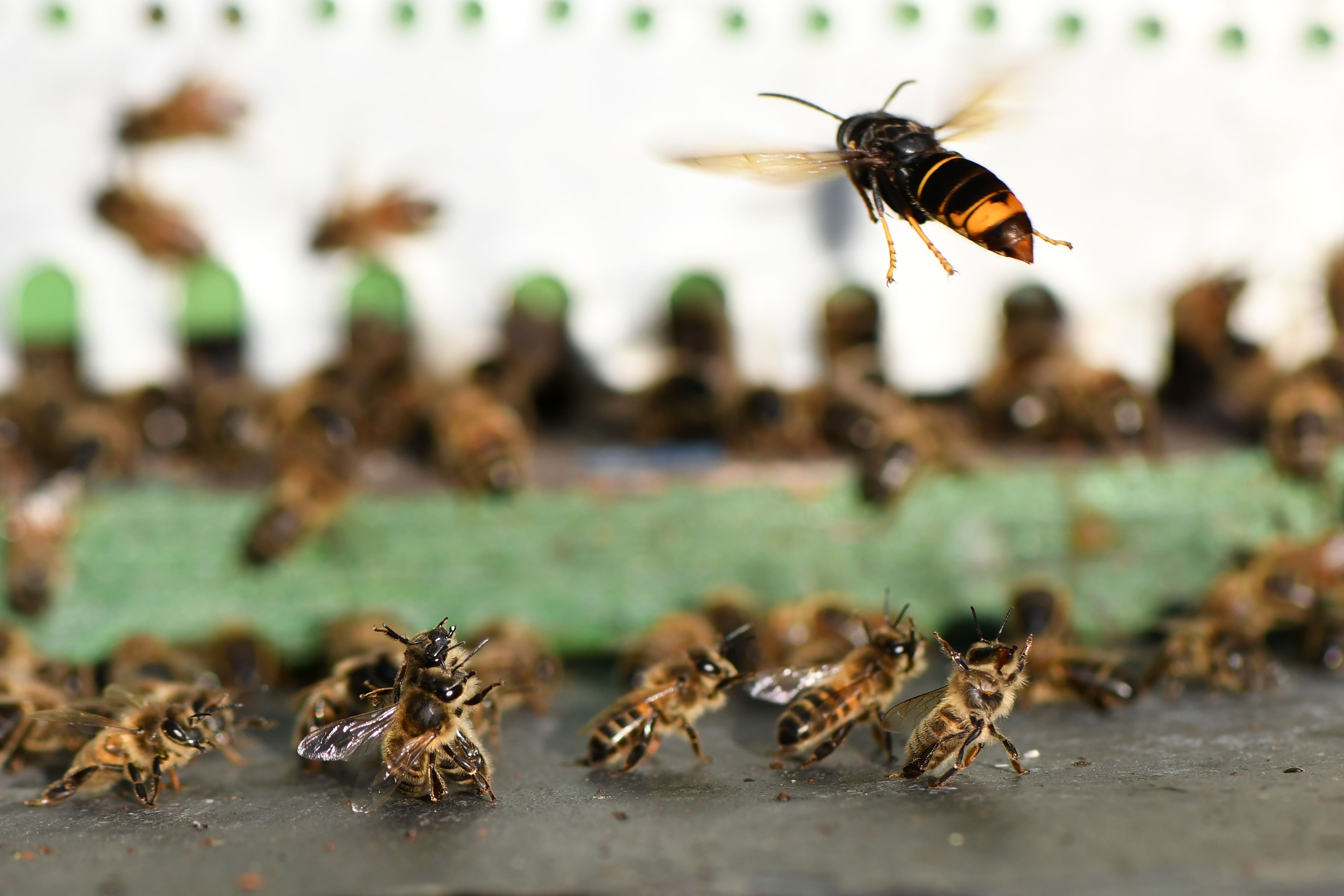Killer Asian hornets reach record levels in UK
This is the first time that more than 70 killer Asian hornets have been discovered in Jersey, continuing an upward trend

Experts are warning that the number of killer Asian hornets has reached a record level in Britain .
To date, 71 Asian hornet queens have been discovered in Jersey — at least 38 were discovered by members of the public and 25 were caught in traps around the island. In 2019, 69 queens were found on the island, setting the previous record for the invasive species that was first spotted in the British Isles in 2016.
The Asian hornets, also known as yellow-legged hornets, received the affable ‘killer’ moniker for their ability to kill those with allergies with just one sting — this is no more dangerous, however, than native European wasps and hornets.
The real danger lies with their ability to devastate native bee populations.
Asian hornets feed on honeybees. They have the ability to eat up to 50 bees per day, and have been known to wipe out entire colonies.
Jersey’s Asian Hornet Coordinator, Alastair Christie, said: “While there is a concern about the number of Spring Queens found, we are running an effective and extensive spring trapping system as part of the control programme.
“The spring control programme was not in place in 2019. We hope that our concerted efforts this year are picking up a greater proportion of the total Queens in Jersey.
“Nest numbers this year are less than half of the number found by this time in 2019.
Despite that, he has said that he remains “optimistic” that a good job has been done in catching the queens. He said that a “clearer picture” would appear in the coming weeks with teams of local volunteers tracking the insects as worker hornets begin to emerge from nests.
Asian hornets look similar to European hornets, but can be identified by their dark brown and black bodies with yellow legs, a pale-yellow belt at their waist and a darker yellow band across their lower end. Queens grow up to 3cm in length, with workers hornets growing up to 2.5cm.
The hornets first arrived in France in 2004, in a shipment of Chinese pottery, and likely made their way to Jersey in produce shipments from France. Queens have also been known to ‘blow’ across the Channel on strong easterly winds.
Since they were first discovered in Jersey, the number of nests has consistently grown. According to the Government of Jersey, 17 nests were found and destroyed in 2017, 55 in 2018 and 83 in 2019.
There was one confirmed sighting of Asian hornets on the mainland in 2020, with the National Bee Unit confirming a sighting In Hampshire in September. In 2019, two related nests were discovered and destroyed in Christchurch, Dorset.
Mr Christie confirmed that no Asian hornets had been sighted in mainland UK this year, and that the situation in Jersey should not have any bearing on the situation in mainland UK.
In the past, Mr Christie has said that eradication of the Asian hornets in Jersey was unlikely, and that Islanders would likely have to “live with” the species to some extent.
People in Jersey are encouraged to monitor their sheds, garages and outdoor spaces for signs of the Asian hornets. If spotted, people are requested to report the sighting to asianhornet@gov.je. It is not recommended that people try to remove nests themselves, as Asian hornets are known to defend their nest area aggressively.
Join our commenting forum
Join thought-provoking conversations, follow other Independent readers and see their replies
Comments
Bookmark popover
Removed from bookmarks